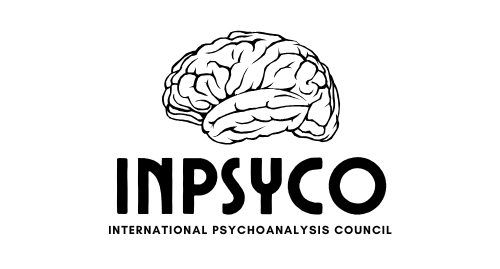Introduction: The Need for Global Regulation
Psychoanalysis is a clinical discipline that operates at the intersection of theoretical knowledge, clinical technique, and ethical responsibility. As a profession that deals directly with the unconscious processes, human suffering, and transference dynamics, psychoanalysis demands rigorous regulation to ensure ethical practice, scientific validity, and patient safety.
The International Psychoanalysis Council (InPsyco) serves as a global regulatory body, establishing technical standards, accreditation processes, ethical codes, and quality assurance protocols that apply to psychoanalytic training, clinical work, and research. These standards create a consistent framework that maintains the scientific and ethical integrity of psychoanalysis across cultural, national, and theoretical boundaries.
Regulatory Scope and Jurisdiction
InPsyco’s regulatory framework applies to:
- Individual psychoanalysts seeking international recognition.
- Training institutes and psychoanalytic societies requesting accreditation.
- Clinical practices, ensuring compliance with ethical and technical protocols.
- Psychoanalytic research, to ensure scientific validity and ethical handling of data.
InPsyco’s standards complement, rather than replace, national or regional regulations. Where national regulations exist, InPsyco seeks to harmonize global standards with local laws and cultural particularities. In regions with no established regulatory bodies, InPsyco functions as a primary regulatory authority, setting both the training and ethical standards.
Technical Guidelines for Psychoanalytic Training
InPsyco defines minimum requirements for training programs, ensuring that accredited psychoanalysts have undergone a comprehensive, scientifically valid, and ethically guided formation process. The technical guidelines include:
1. Minimum Duration and Structure
- Minimum of 5 years of formal training.
- Structured into three core components:
- Theoretical Education: Minimum of 800 hours covering foundational theory, clinical technique, and specialized topics.
- Personal Analysis: Each candidate must undergo personal analysis with a recognized analyst for at least 400 sessions.
- Supervised Clinical Practice: Minimum of 300 hours of supervised psychoanalytic treatment of at least 3 patients, with detailed case reporting.
2. Curriculum Requirements
Mandatory theoretical content includes:
- Foundations of Freudian Metapsychology.
- Psychopathology and Diagnosis from a Psychoanalytic Perspective.
- Theory of Transference and Countertransference.
- Psychoanalytic Technique and Process.
- Developmental Psychology and Psychosexual Development.
- Comparative Studies (other psychoanalytic schools).
- Ethics and Professional Conduct.
- Research Methodologies in Psychoanalysis.
Accreditation of Psychoanalytic Training Institutes
Institutes seeking InPsyco accreditation must demonstrate:
- Alignment with InPsyco’s technical and ethical training standards.
- Documented curricular structure, including syllabi, reading lists, and faculty credentials.
- A faculty composed predominantly of recognized psychoanalysts with at least 10 years of clinical experience.
- A system for evaluating candidate progress, including clinical case presentations, theoretical exams, and final oral evaluation by an external commission.
The accreditation process involves:
- Initial Application and Documentation Review.
- On-site or Virtual Inspection (for new applications).
- Periodic Re-evaluation every 5 years.
- Mandatory Participation in InPsyco’s Annual Academic Review Forum.
Professional Standards for Psychoanalysts
To receive InPsyco Professional Certification, individual psychoanalysts must:
- Hold a diploma from an accredited training institute.
- Provide proof of personal analysis conducted by a recognized psychoanalyst.
- Demonstrate completion of supervised clinical work, with detailed case reports evaluated by an independent committee.
- Sign and adhere to the InPsyco Code of Ethics.
- Commit to ongoing professional development, documented through continuing education credits (minimum of 30 hours every 2 years).
Ethical and Clinical Standards
InPsyco’s Code of Ethics serves as the cornerstone of regulatory oversight, ensuring that psychoanalytic practice maintains both clinical rigor and respect for patient autonomy and dignity.
Core Ethical Principles
- Confidentiality: Absolute protection of all patient information, except in cases of imminent risk to life.
- Non-Exploitation: Prohibition of any financial, emotional, sexual, or ideological exploitation within the analytic relationship.
- Competence: Analysts may only work within their scope of expertise, with referral obligations when necessary.
- Informed Consent: Patients must receive clear, understandable information about the nature, process, and limitations of psychoanalytic treatment.
- Record-Keeping: Clinical records must be accurate, objective, and secure, retained for at least 10 years post-treatment.
Monitoring and Enforcement
InPsyco ensures compliance through:
- Ethical Review Panels that investigate complaints or suspected breaches.
- Periodic Audits of accredited training programs and certified psychoanalysts.
- Public Transparency Reports summarizing regulatory actions taken (without compromising confidentiality).
Sanctions for ethical violations range from:
- Formal reprimands.
- Mandatory retraining or clinical supervision.
- Temporary suspension of certification.
- Permanent revocation of professional certification in cases of severe misconduct.
Regulation of Research Involving Psychoanalysis
Psychoanalytic research, particularly case study publications and process research, must comply with both:
- Scientific Validity Standards (clearly defined methodologies, documented analysis process, peer review).
- Ethical Standards (informed consent, anonymization, respect for patient dignity).
All research involving clinical material must be reviewed by an Ethics Committee either at the institutional or InPsyco level before publication.
Cross-Border Recognition and International Mobility
To facilitate the international mobility of psychoanalysts, InPsyco promotes:
- Mutual Recognition Agreements with national regulatory bodies.
- Creation of Transnational Accreditation Certificates for analysts working in multiple jurisdictions.
- Standardized Training Equivalency Assessments for analysts trained in non-accredited programs who seek regularization.
Adaptation to Local Contexts
InPsyco’s global framework allows for cultural adaptations while maintaining core professional and ethical standards. Regional psychoanalytic bodies can apply for:
- Recognition of culturally-specific clinical practices.
- Approval of alternative training models if they meet equivalent standards in terms of theoretical rigor, personal analysis, and supervised practice.
- Ethical adaptations aligned with local cultural and legal traditions, provided they do not compromise fundamental patient protections.
Conclusion
Regulation is not a bureaucratic burden—it is an ethical and scientific responsibility essential to ensuring psychoanalysis remains a respected and trusted profession. Through its comprehensive regulatory framework, InPsyco protects:
- Patients, ensuring they receive treatment from qualified professionals.
- Professionals, by defining clear paths to qualification and ethical conduct.
- The Scientific Integrity of Psychoanalysis, through evidence-based standards and rigorous quality control.
International Psychoanalysis Council (InPsyco)
Regulation as the Foundation of Professional and Scientific Integrity
